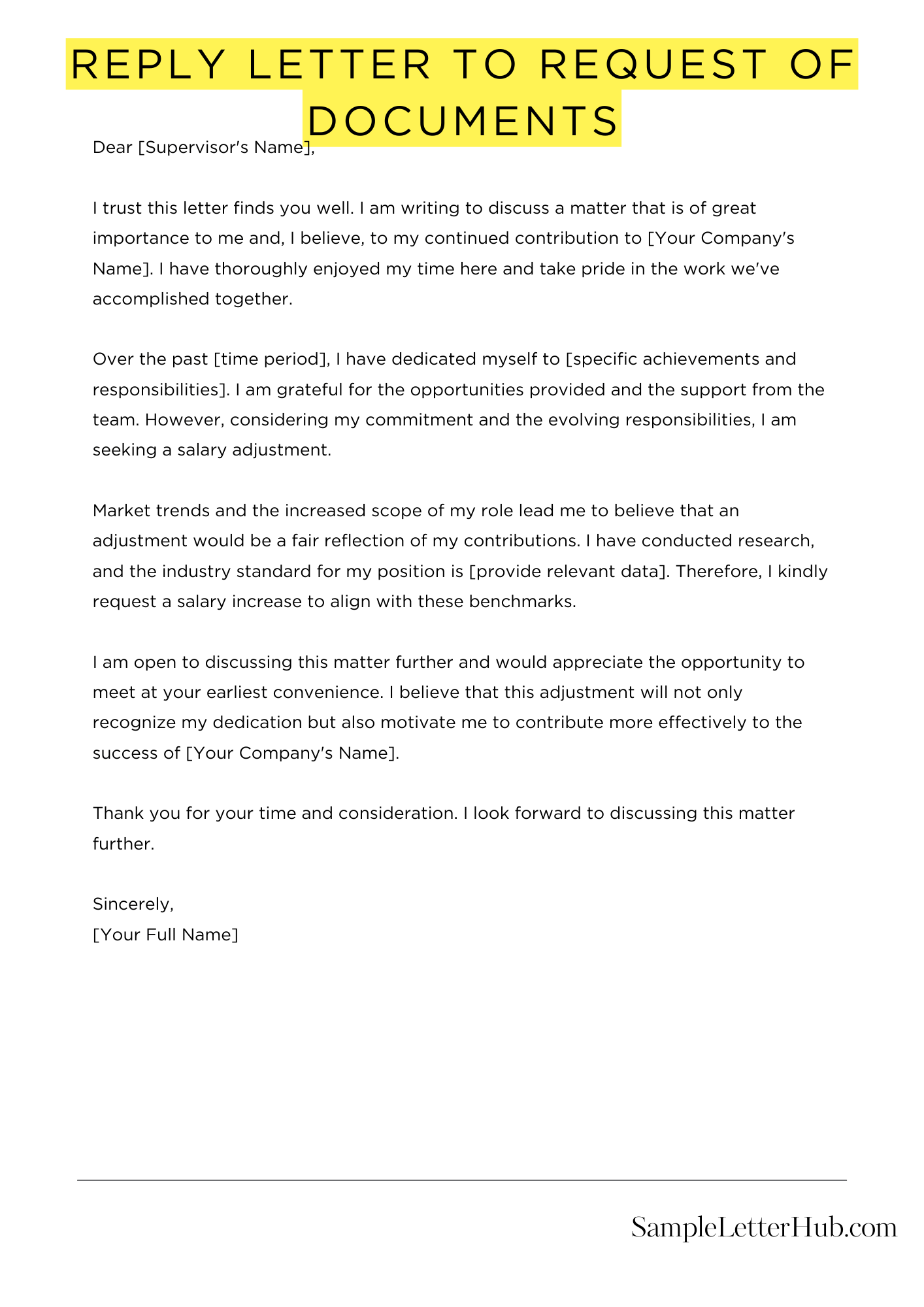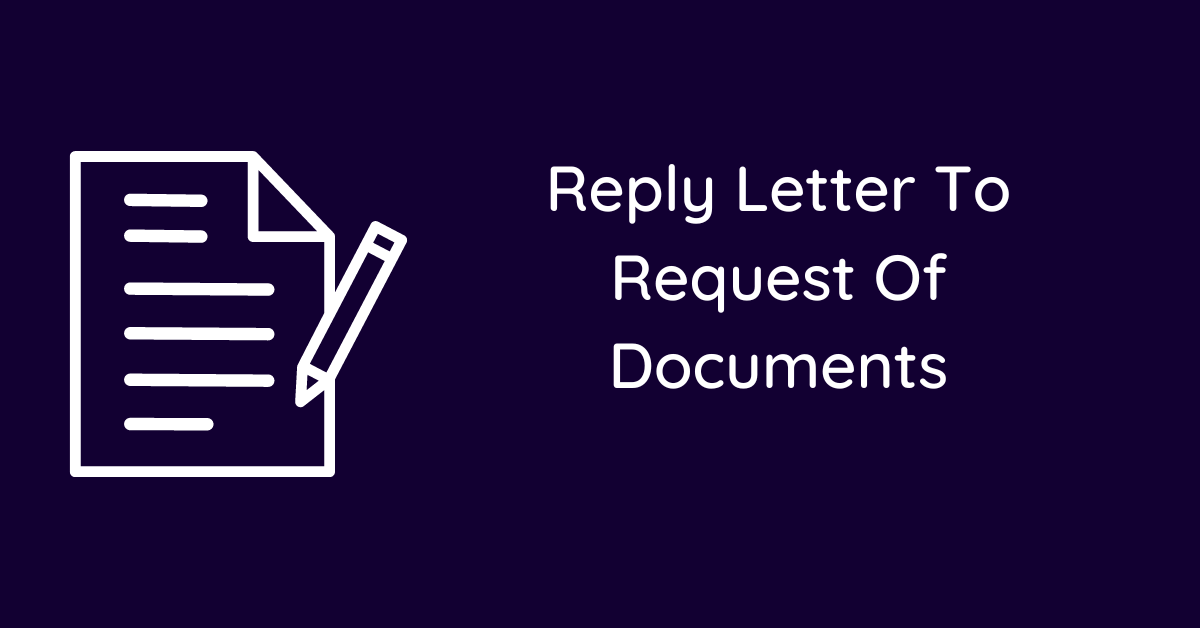Reply Letter To Request Of Documents is a response to a request for documents. It is typically written by an individual or organization that has been asked to provide specific documents to another party. The purpose of the reply letter is to acknowledge the request, indicate whether the requested documents can be provided, and specify the timeline for providing the documents.
In this article, we will share templates, examples, and samples of Reply Letter To Request Of Documents. These resources will provide you with a starting point for writing your own reply letter. They will also help you to understand the key elements that should be included in a reply letter.
Reply Letter to Request of Documents
Dear [Recipient Name],
I received your request for the following documents:
* [Document 1]
* [Document 2]
* [Document 3]
I am happy to provide you with these documents. I have attached them to this email for your convenience.
Please let me know if you have any further questions.
Sincerely,
[Your Name]

How to Write a Reply Letter to a Request for Documents
When you receive a request for documents, it is important to respond promptly and professionally. The following tips will help you write a reply letter that is clear, concise, and informative.
- Start by acknowledging the request. Thank the sender for their request and state the date you received it.
- Indicate whether you can provide the requested documents. If you can provide the documents, state when you will be able to do so. If you cannot provide the documents, explain why.
- Provide any additional information that the sender may need. This could include information about the format of the documents, the cost of copying or shipping, or any other relevant details.
- Be polite and professional. Even if you are unable to provide the requested documents, it is important to be polite and professional in your response.
- Proofread your letter carefully before sending it. Make sure there are no errors in grammar or spelling.
- Keep a copy of your letter for your records. This will help you track your correspondence and ensure that you have a record of what was sent.
- Follow up with the sender if necessary. If you have not received a response to your letter within a reasonable amount of time, follow up with the sender to ensure that they received your letter and to inquire about the status of their request.
By following these tips, you can write a reply letter to a request for documents that is clear, concise, and informative. This will help you build strong relationships with your clients and ensure that they have the information they need.
FAQs about Reply Letter To Request Of Documents
### 1. What is a reply letter to a request for documents?
A reply letter to a request for documents is a formal response to a request for specific documents or information. It acknowledges the request, provides the requested documents or explains why they cannot be provided, and may include additional information or instructions.
### 2. When should I send a reply letter to a request for documents?
A reply letter should be sent promptly after receiving a request for documents. The specific timeframe may vary depending on the urgency of the request and the availability of the documents.
### 3. What should I include in a reply letter to a request for documents?
A reply letter to a request for documents should include the following information:
– Acknowledgment of the request
– List of documents provided (or explanation of why they cannot be provided)
– Any additional information or instructions
– Contact information for further inquiries
### 4. How should I format a reply letter to a request for documents?
A reply letter to a request for documents should be formatted in a professional and easy-to-read manner. It should include a clear subject line, a formal salutation, and a closing signature.
### 5. What are some common reasons for not being able to provide requested documents?
There are several reasons why a request for documents may not be able to be fulfilled, including:
– The documents do not exist or cannot be located
– The documents are confidential or privileged
– The documents are subject to a legal hold or other restriction
– The documents are too voluminous to provide

